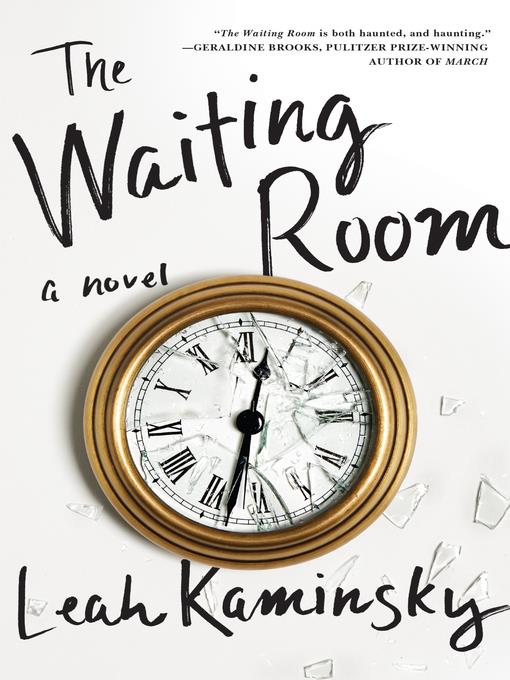
The Waiting Room
A Novel
کتاب های مرتبط
- اطلاعات
- نقد و بررسی
- دیدگاه کاربران
نقد و بررسی

September 15, 2016
The daughter of Holocaust survivors contends with present-day violence in Israel and Palestine.When Dina wakes up one morning to radio warnings of a possible terrorist attack, she's both worried and surprised: normally Haifa, her home, doesn't see much violence. Dina is a doctor as well as the mother of a young boy, with a baby on the way. She's afraid to let her son go off to school, but what else can she do? She kisses her son and husband goodbye and heads off to work. Kaminsky (Stitching Things Together, 2012, etc.) is also, like Dina, a doctor. She's an evocative storyteller, and she's sensitive to the intersections between physical and emotional pain and the way that memory intrudes upon daily reality. But Kaminsky may have bitten off more than she can chew in her first novel. This isn't just a story about contemporary violence in Israel and Palestine. Dina is the daughter of Holocaust survivors. After enduring life in Bergen-Belsen and Auschwitz, her mother and father fled to Australia, where they raised their daughter. Reared on her mother's stories of horror and war, Dina can't seem to escape violence, no matter how far she flees. She spends much of the novel, which takes place over the course of a day, bickering with the ghost of her mother. As she drives to work or to her son's school or to the shoemaker to fix a broken heel, her mother's ghost tries to hold court. "Did I tell you how we slept in the same wooden bunk all those nights in Bergen-Belsen?" she will say. "You need to know these things, Dina." But Dina is impatient and busy. "Not now, mother. I have to get back to work," she says. "We can talk about this later." Eventually, as the violence in her mother's past begins to converge with the violence in Haifa, Dina is forced to contend with her mother. But their bickering seems more precious than moving, and it becomes tiresome. Then, Kaminsky's prose is clotted with mundane details that detract from the heart of the novel. These asides--about putting on makeup, purchasing apples, etc.--are not only distracting, but they're also boring, and they slow down the narrative. Dina's story might have benefited from a little less schtick and a little more honest reckoning. An ambitious debut is bogged down in banalities and too-cute narrative tricks.
COPYRIGHT(2016) Kirkus Reviews, ALL RIGHTS RESERVED.

October 15, 2016
Australian physician and writer Kaminisky's first novel centers on Dina, who finds her everyday life as a doctor in Haifa, Israel, intertwined with both her family's past and collective Jewish history. Raised in Australia by Holocaust-survivor parents, she reaches Israel as an adult and experiences an immediate sense of belonging. However, even as she meets and marries Eitan, has a child, and settles down, she feels an inner tug-of-war as she longs to return to Melbourne, away from the relentless sense of impending disaster. Kaminsky uses the events of one day as this busy mother and doctor runs from home to school to office and deals with errands to dramatize what it means to live under constant threat. But she also reminds us that life is the same everywhere, even in places of high-wire stress, as we face such realities as a strained marriage and the struggle to make time to be with one's child. Kaminsky brings Dina into sharp focus, while her ghostly mother serves as a strong secondary character, in order to vividly personalize stark news reports.(Reprinted with permission of Booklist, copyright 2016, American Library Association.)

























دیدگاه کاربران